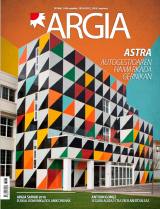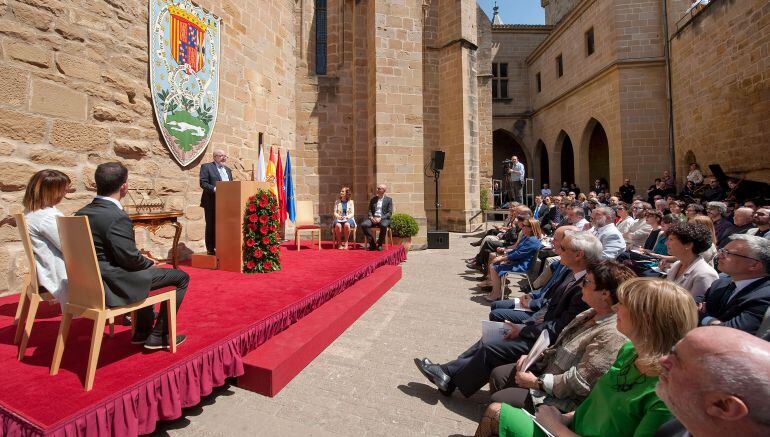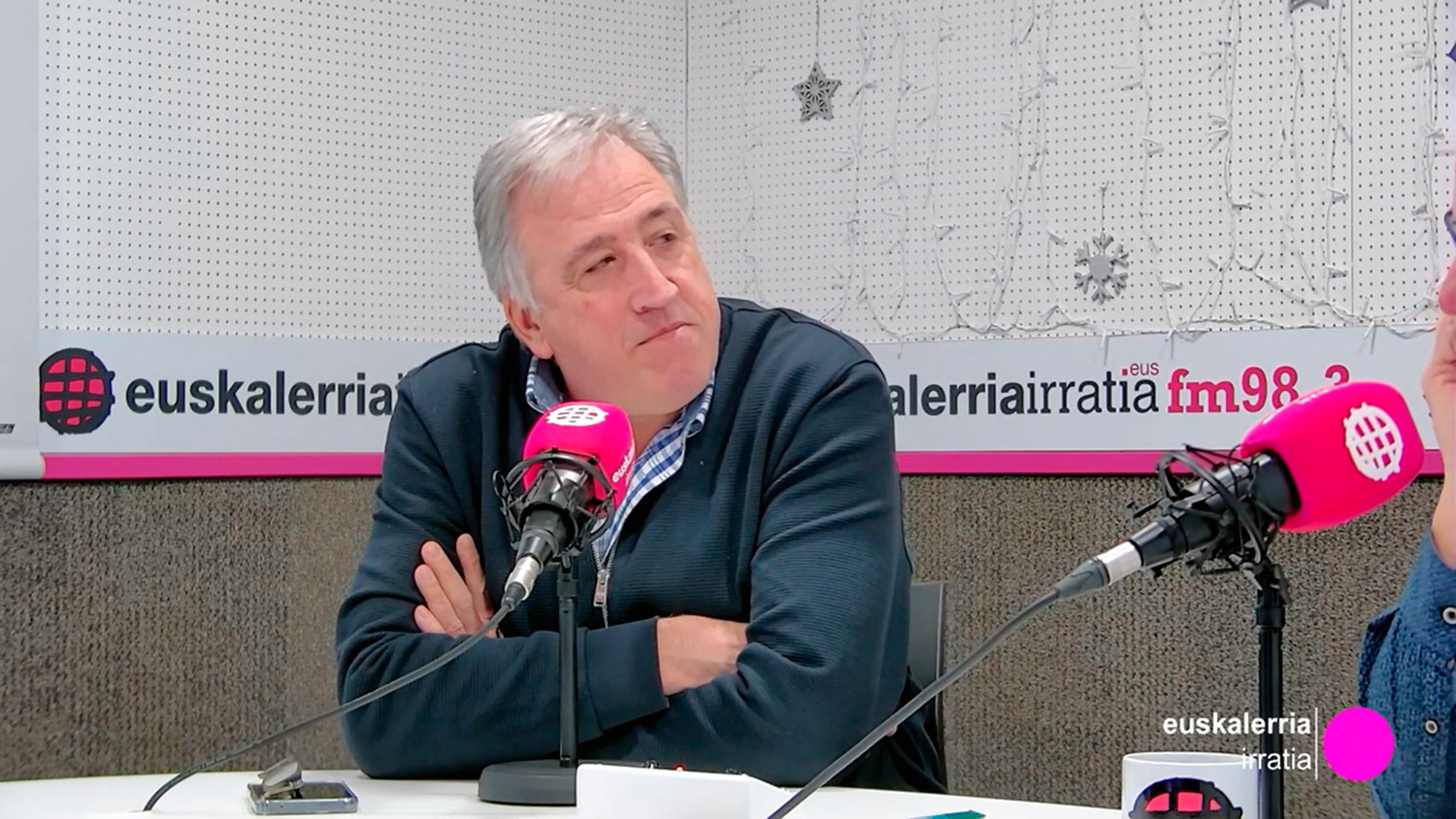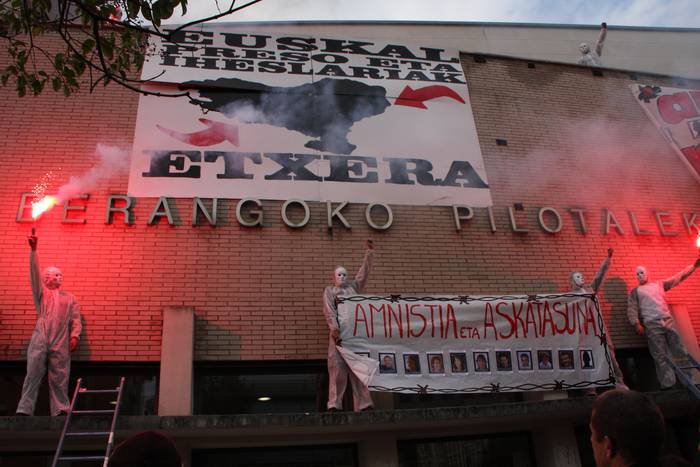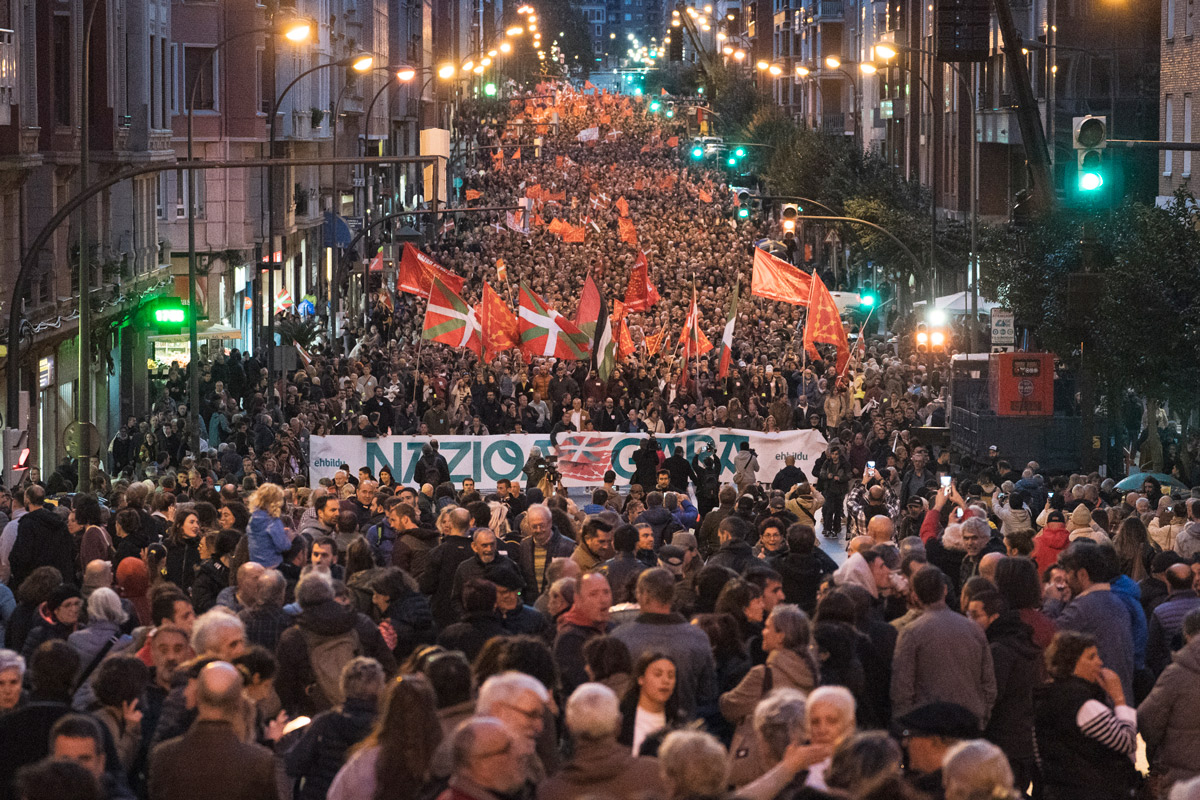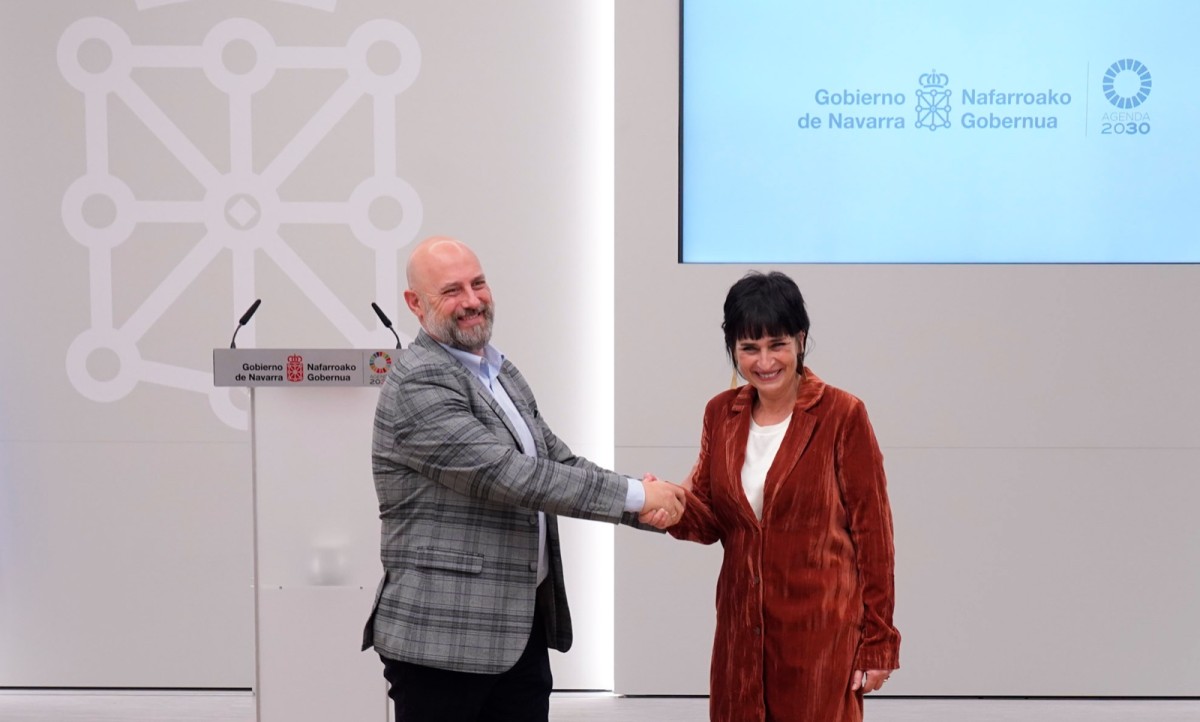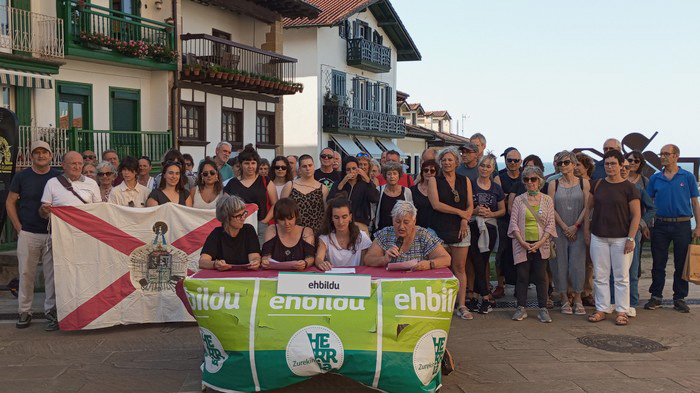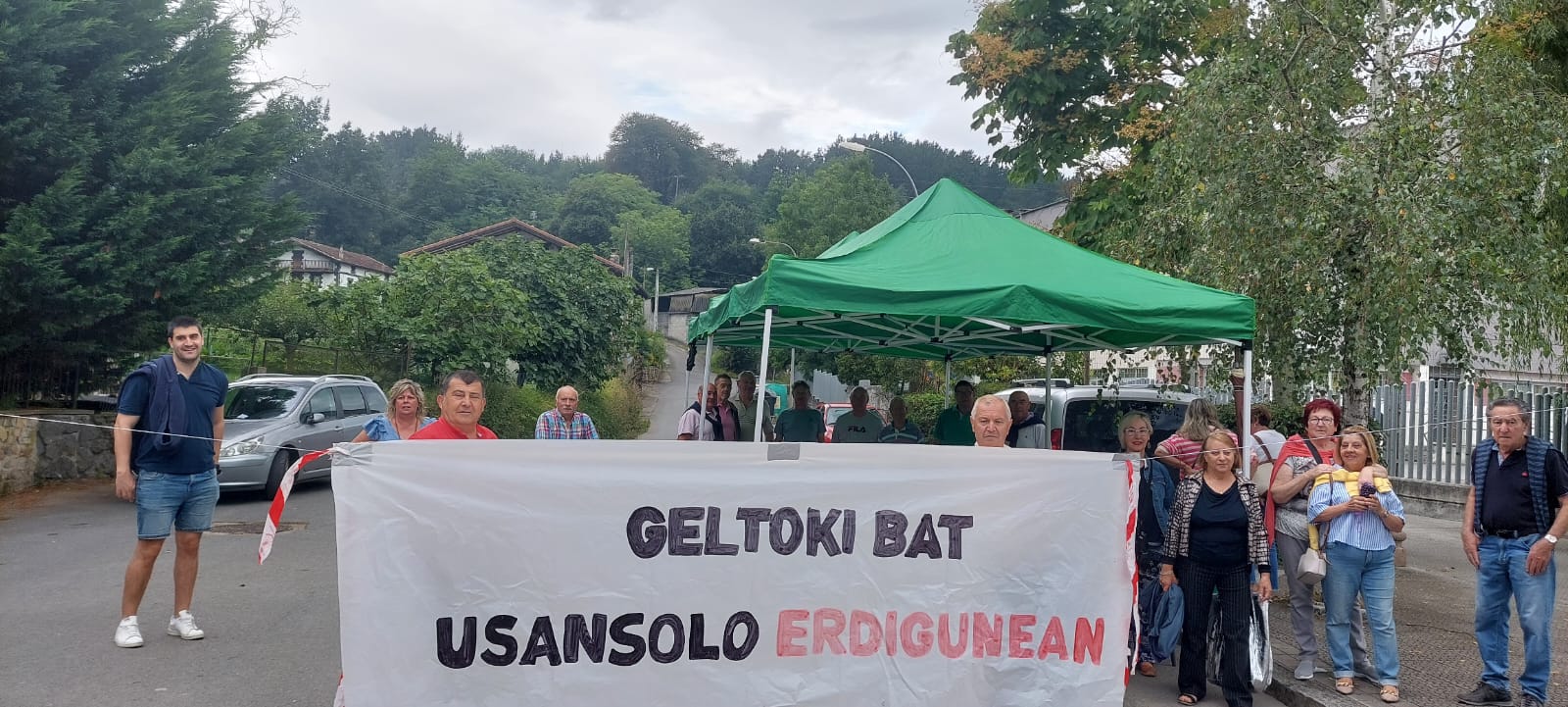"After 'Zutik Euskal Herria' all the eggs were placed in the institutional basket"
- ANV-EAE (National Action Vasca-Eusko Abertzale Ekintza), founded in 1930, was banned in 2008 by the Spanish National Court. Third illegalization in the history of the party. Antxon Gómez (1964, Vitoria-Gasteiz) was his Secretary-General for years. It is imputed in case 04/08 (Segura, EHAK-PCTV and EAE-ANV). We spoke with him of the agreement reached at the trial and of the trajectory of the Abertzale left over the last 15 years.
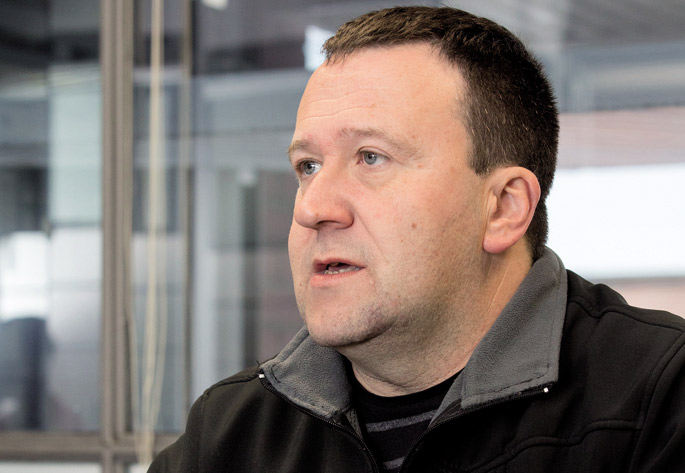
Let's go back to the year 2000. Then the unity arose and you were left out of the new party. Why?
Batasuna emerged as a party and ANV said it would not participate in the breakdown of the unity of citizenship, which was HB. In the political culture of ANV there has always been participation in the front line of citizenship. In the 1930s, we were on the state Popular Front, on the Franco regime in the Basque Front, and in the early 1980s, on the creation of the HB.
We have always opted for civic unity for two reasons. One is the only way to reap the full potential of the Abertzale left; it is impossible for the small independent entrepreneur and the members of the communist party to be in one party, but in the unity of the citizens. Two, the only political party is weak in the face of the state and, above all, in the face of repression, as was then clearly seen with Batasuna.
Then came the era of illegalization. You weren't at best with Batasuna, but in the 2007 municipal elections you were the brand of the Abertzale left. What memories do you have?
The Abertzale Left is a large sociopolitical family in the Basque Country, very diverse in ideology and organization, much more than Batasuna. It can range from the communist and libertarian level to socialdemocracy or socialchristianity. The whole camp ran out of acronyms in the elections and we put our acronyms to its support; if it was Aralar, it represented a very concrete area of the Abertzale left.
“With the one-party model, a democratic confrontation with states is not possible”
After the elections you were also outlawed. What were the consequences for ANV?
It had very important economic consequences. In the whole of the Abertzale left, possibly ANV was the institution with the best economic situation, because in 2002 the State compensated us with a small part of the patrimony plundered in the War of 36, around 600,000 euros. It could be a lot more, perhaps up to a million and a half euros. After having outlawed several of our lists, they drew up an ad hoc law not to collect compensation, saying that if any of the parties were illegalized, they would lose compensation. We also lost several homes.
There were also personal consequences. In addition to the administrative route that was under way for the illegalization, [Baltasar] Garzón activated the criminal procedure to prevent him from being presented to the elections. To do so, he had to charge several members and so he did with Kepa [Bereziartua], Alazne [Arozena] and with me.
One of the turning points in 2010 was the document Zutik Euskal Herria. How did you live?
This text indicated the end of the political-military cycle and the beginning of another cycle. Historic ANV members actively participate in favour of change. These kinds of texts, however, often become sacred texts and give for many interpretations. This text could give the opportunity to do what Sortu has done or take steps.
For those who walked through ANV, was Zutik Euskal Herria developed?
We believed that after the end of the political-military cycle, the cycle of democratic confrontation with the State would open. For this, it was a tool, for example, Esan Euskal Herria: It was a coordinator who brought together over 70 agents and individuals to promote democratic confrontation with the State through input, civil disobedience and the like. Apparently, some had cut that path.
The Independentistak Network was another of those instruments, took the reference and suddenly began to lose gas from all over the place. And it came about that Locks Esku Dago, moving from a direct independence approach to the right to decide. Other popular movements were also liquidated, that street steam was lost and all the eggs were placed in the institutional basket.

in Barakaldo
An alliance was established with EA, Aralar and Alternatiba and that is good in our tradition, because it is good to gather as many votes as possible in the elections and to manage the institutions you need allies. The worst thing is that when the strategy and the tactic are mixed, that is, that EH Bildu's alliances become strategic, blurring their political project there.
There was a great controversy for Zutik Euskal Herria, especially for the way of deciding, who, how…
The clash arose at the heart of the times and two opposing views emerged from the Abertzale left: on the one hand, the organization of the unity of citizenship, which is based on a strong popular movement, which will keep society active, which inevitably leads to democratic confrontation with states; and on the other, a party that is increasingly normalized within the system, which will work less and less with youth and unions, but on the other hand. With the one-party model, a democratic confrontation with the States is not possible.
And these imputations of those illegalizations. You were also included in the Safe Case by the National Court, but you are the only one who has had an exceptional lawyer. What happened?
Our defense has always been carried out by a well-known lawyer from the Abertzale left and was the defense of the illegalization of ANV, which was done within the framework of the Parties Act. That group of lawyers was well aware of our 18,000 page summary. About four months before, in 2014, what was planned to start the trial, Pernando Barrena came to talk to me and told me that he was no longer from the Abertzale left and that it didn't make sense to be with the same team of lawyers.
“Pernando Barrena told me that he no longer belonged to the Abertzale left and that it didn’t make sense to be with the same team of lawyers.”
This had two consequences. On the one hand, in the absence of four months for the trial to begin, who was going to take that immense sum? It wasn't easy. On the other hand, I was desolate. What did it mean that I wasn't a member of the Abertzale left when I've always worked in that world? My interpretation is that Sortu still has an insurmountable contradiction between popular unity and the single party. In addition, we were very critical of what they called process. People can't sell smoke. We said it in an opinion article a week before Barrena arrived, I don't know if that would also affect our exclusion, but six or seven months later Arnaldo Otegi said the same thing: there was no process because for the process to take place there are two parts. It did not make sense to go to court in two groups – I and the remaining 34 – but they decided, and in the end my defense was taken by lawyers who worked with Basque militants in the defence of the tartalaris and in other respects: Haizea Núñez and Fidel Sánchez. I would like to thank you for your willingness to face such a difficult trial.
How do these facts affect their relationship with the defendants?
Naturally, relations are getting worse. The relationship with some of the accused is good, but with others I do not speak.
Finally, the issue has been resolved by agreement. What has the process been like?
On the morning of 11 January, several witnesses from the prosecutor were testified and the agreement was offered to us in the afternoon. It was a word. Subsequently, the Prosecutor’s Office, the AVT, Dignity and Justice (DyJ) and the defense attorneys reached a final agreement that, once approved by all, was incorporated into the judgment. If there's been another cooking job, we don't know.
What are the keys to the agreement?
We have accepted the accusations against us and made reference to the victims; we have accepted the penalty and in return we are not going to jail. The agreement had to be ratified unanimously. The accusations against me are: to give press conferences, to organize demonstrations and to prepare for the election campaign; and that I did all on the mandate of Batasuna.
The interpretations that the parties have made on the agreement are very different. For example, DyJ says they have confirmed the theory that “everything is ETA.”
DyJ himself said that there was a great deal of chance that some of the defendants would leave without charge and have therefore preferred to punish everyone, rather than exculpt some of us. There are many agreements in the trials, but for the first time there has been a macro-trial of this kind. From asking for 10 years, he's gone down to a year and a half, he's avoided jail, he's put little disenfranchisement -- in that first moment he's let us be blown away.

In the interpretations, there is a rejection of armed activity.
The word condemnation does not appear in the agreement. One thing is the agreement and another is what is said about the agreement at the press conference the following day. We have signed that from now on we will relinquish the use of violence. I have been a member of ANV and have never used violence. Giving up what you've never used creates no contradiction for me.
Therefore, by offering you the possibility of avoiding jail and seeing that it does not create contradiction, the agreement is very good.
It's not that good, because to be good, it would have to be recognized by all the victims. Closing the political-military cycle requires reparation for all the victims. Every victim has the right to truth, justice, reparation and non-repetition, but only the victims of one party are being recognized. That is why we do not live in political normality. We must not forget that we have received a sentence, they have only suspended prison.
Does the agreement give hope for other macro processes in the future?
We believe that this agreement is timely, but time will tell. Our “crime” has reduced the applied articles by two degrees and can only be used if the consequences of “crimes” are not serious, that is, if there are no victims among them. It would not serve the members of the armed organization or cases related to street violence. However, it is not a little; more than 100 people are awaiting trial for their public political action.
On the eve of the agreement, Rufi Etxeberria invited the EPPK to take further steps in negotiating the agreement. Do the two facts have anything to do with it?
Some seem to want to unite the two. I see no real link. We often forget that political prisoners and their families have a lot of work in everyday life, facing the problems that have generated dispersion and prison. Rufi Etxeberria is a political leader who should not burden the prisoners any more, as he considers his current situation to be complicated. It is up to us to give socio-political support to prisoners. I find it shameful to put the burden back on the backs of prisoners and family members.
How do you see the debate on amnesty?
It is mixed with the tactical strategic objective. Amnesty is as strategic as independence and socialism, and that has always been the case within the Abertzale left. The only way to end the political conflict is to amnesty the political militants, as it means overcoming the causes that have led to the conflict. The demand for amnesty gives prisoners a political character.
“The demand for human rights should coincide with the struggle for amnesty. The two roads are not opposed.”
The demand for human rights should coincide with the fight for amnesty. Both roads are not opposed to each other. In recent months they have wanted to symbolise the clash between the amnesty movement and Sare’s approach. Someone will have to explain why it is possible to support the amnesty movements in Ipar Euskal Herria for the demonstration called by Sare in Baiona and why it is not possible in Hegoalde. In these kinds of internal conflicts, a lot of force is lost and there are a lot of people who are up to their necks. There is a lack of illusion and energy.
By joining this issue with the agreement, I would like to bring the words of Filipe Bidar: “We are on the street, but we are not free.” Political prisoners leave prison, but they are not free, they have a background – as in our case – they have to face compensation, they are marked, there may be disqualifications, etc. Amnesty is necessary for all these people to be free in Euskal Herria.
Bizkaian eta Gipuzkoan egin bezala, EAEko estatus politiko berriak Euskal Herria nazio gisa aitortzea eta erabakitzeko eskubidea jasotzea eskatu dute Arabako Batzar Nagusietan alderdi abertzaleek.
The Dual sculpture, placed on Ijentea Street, was inaugurated on May 31, 2014 in tribute to the 400 Donostiarras executed by the Franco regime during the coup d'état of 36 and the subsequent war. It was an emotional act, simple, but full of meaning. There they were relatives and... [+]
«Gatazkaren konponbidean baliagarria izango delakoan» EH Bilduko Lantalde Feministak egindako hausnarketa plazaratu du Arma Plazan. Igor Enparan alkateari «Jaizkibel konpainiak bakarrik betetzen duen legea betearazten hasteko, eta Alarde bakarra, guztiona eta... [+]









